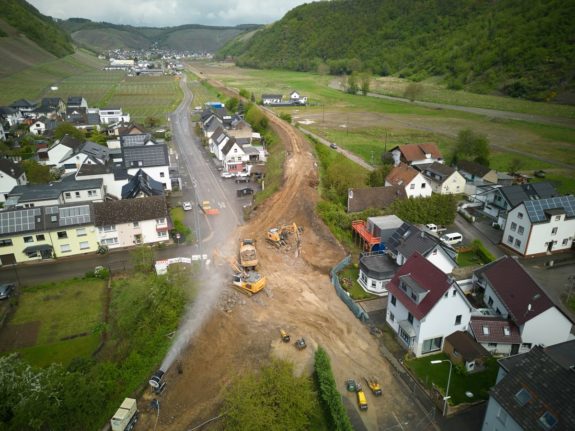“My colleagues are extremely frustrated – we catch a diplomat committing a crime and cannot do anything,” Klaus Eisenreich, regional head of the GdP police union, told daily newspaper BZ.
The paper reported on Friday that Ri Si Hong had been caught fishing in the Havel River in Spandau in the west of the city – but had not only failed to produce a fishing license, but refused to stop.
He told the police officers who challenged him he was the North Korean ambassador, and was so convincing that they got a photo sent to them by colleagues, and confirmed he was who he claimed to be.
Even when they asked him to stop, the BZ said, he refused to pack up his fishing gear, but smiled and waved them off, reminding them that they could not arrest him due to his diplomatic status.
The river is popular with anglers who often find perch and bass there.
A police spokesman told The Local, “I can confirm that there was an incident of illegal fishing, but cannot say anything about the identity of the person concerned.”
Convicted poachers can face a jail sentence of up to two years in Germany.
The North Koreans have refused to comment on the matter: A spokesman for the embassy told a BZ reporter that “all journalists are dirt” before hanging up.
As the former centre of the Cold War, when spies were scattered through the city, Berlin is used to dealing with diplomats’ dodgy dealings.
There are around 5,000 foreign diplomats in Berlin, according to the BZ, and many seem to disregard the law of the land.
In 2010, there were 15,000 police reports of violations by diplomats related to everything from illegal parking to drunk driving – an increase of 3,300 over the year before.
There have been several cases of diplomats refusing to pay hospital fees or refusing to take breath tests when caught drunk driving. One embassy worker from Saudi Arabia was even accused last year of treating a woman he employed as a slave.
In most cases, all the German government can do is warn embassies and, in the most severe cases, expel diplomats from the country.
“No matter how seemingly small the offence is; one must repeatedly exert pressure so that diplomats meet the norms of the host country,” Peter Trapp, a Berlin state legislator told the BZ.
“The Foreign Ministry should talk with North Korea’s foreign minister and tell him how the ambassador is behaving here,” Trapp said.
The Local/mdm



 Please whitelist us to continue reading.
Please whitelist us to continue reading.
Member comments